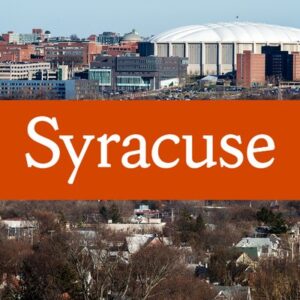S4 introduce you to foundational and emerging questions, theories, and methods for science of science. We will review the big questions regarding knowledge production and the role of individuals, teams, countries, institutions, and funding agencies in making this possible. We will review machine learning, artificial intelligence, network science, and other topics to answer these questions. The school will be heavily based on Python, scikit-learn, TensorFlow/Keras, networkx, and the JupyterLab environment. We will provide a curated web-based environment with all software packages and relevant datasets pre-installed, so you will not need anything installed on your computer.
Speakers/mentors: Aaron Clauset, Associate Professor, Colorado University, Boulder; Ludo Waltman, Professor, Leiden University; Roberta Sinatra, Associate Professor, ITU Copenhagen; Julia Lane, Professor, New York University; Daniel Romero, Associate Professor, University of Michigan; Patricia Feeney, Head of Metadata, Crossref; Bei Yu, Professor, Syracuse University; Arunas Radzvilavicius, Editor, Nature Human Behaviour; Nihar B. Shah, Assistant Professor, CMU; Tom Hope, Assistant Professor, HUJI, and Research Scientist, Allen AI (AI2)
Organizers: Daniel Acuna, iSchool, Syracuse University; Stephen V. David, Oregon Health & Science University
The first week of summer school, August 1 – August 5, 2022: Interest-based suggested matching for group projects, Synchronous lectures and presentations by leaders in the field, Opportunities for group discussion about lectures, Opportunities for socializing. The second week of summer school, August 8 – August 12, 2022: Synchronous (Zoom) lectures from mentors and speakers, One-on-one or small group meetings with mentors, Project presentations and results by the end of week August 12, 2021
Topics to be covered at S4: Computational discovery of new knowledge, Predictability and analysis of success, Problems and opportunities in scientific peer review, Issues in replication and reproducibility, Economics of science and science policy, Analysis of open access scientific literature and other scientific artifacts, Evolution of scientific ideas, Age, gender, and mentorship effects on science, Scientific misconduct and computational research integrity
Techniques: Machine Learning / Artificial Intelligence, Network Science / Complex systems, Informetrics / Scientometrics / Bibliometrics, Visualization, Econometrics / Causal inference, Library Science
https://s4.scienceofscience.org/



